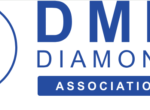A study published in Satellite Navigation on June 30, 2025, reveals that global ocean analysis products, specifically from the HYbrid Coordinate Ocean Model (HYCOM), can achieve centimeter-level accuracy in seafloor positioning, comparable to traditional in-situ sound speed measurements. This finding suggests a significant reduction in costs and logistical hurdles for marine geodetic surveys, especially beneficial for unmanned vehicles and long-term monitoring projects.
Accurate seafloor positioning is essential for various applications, including tectonic movement studies, earthquake research, and marine resource exploration. The Global Navigation Satellite System-Acoustic (GNSS-A) technique, which combines satellite and acoustic measurements, traditionally depends on costly in-situ sound speed profiles (SSPs). These measurements are not only expensive but also time-consuming and challenging to collect due to variations in ocean temperature, salinity, and pressure.
The research, conducted by a team from the First Institute of Oceanography, Ministry of Natural Resources, and Shandong University of Science and Technology, evaluated the feasibility of using HYCOM global ocean analysis products for GNSS-A positioning. The study found that HYCOM-derived SSPs provided horizontal positioning accuracy of 0.2 cm (RMS) and vertical accuracy of 2.9 cm (RMS), closely matching the accuracy of traditional in-situ measurements. This method eliminates the need for costly sound speed field surveys, offering a practical and cost-effective alternative.
Dr. Yanxiong Liu, the corresponding author, highlighted the implications of this advancement, noting its potential to expand access to seafloor geodetic technology for broader scientific and industrial applications. The study’s findings could revolutionize seafloor geodetic monitoring by making GNSS-A positioning more affordable and accessible, particularly in earthquake-prone regions and for offshore industries.
The study’s approach not only promises to reduce operational costs but also enhances the efficiency of seafloor geodesy, paving the way for more frequent and high-precision surveys. This innovation could significantly impact the study of seafloor plate tectonics, unmanned vehicle navigation, and deep-sea exploration, marking a pivotal step forward in marine science and technology.

This news story relied on content distributed by None. Blockchain Registration, Verification & Enhancement provided by NewsRamp . The source URL for this press release is Global Ocean Analysis Offers Cost-Effective Alternative for Seafloor Positioning.
. The source URL for this press release is Global Ocean Analysis Offers Cost-Effective Alternative for Seafloor Positioning.






